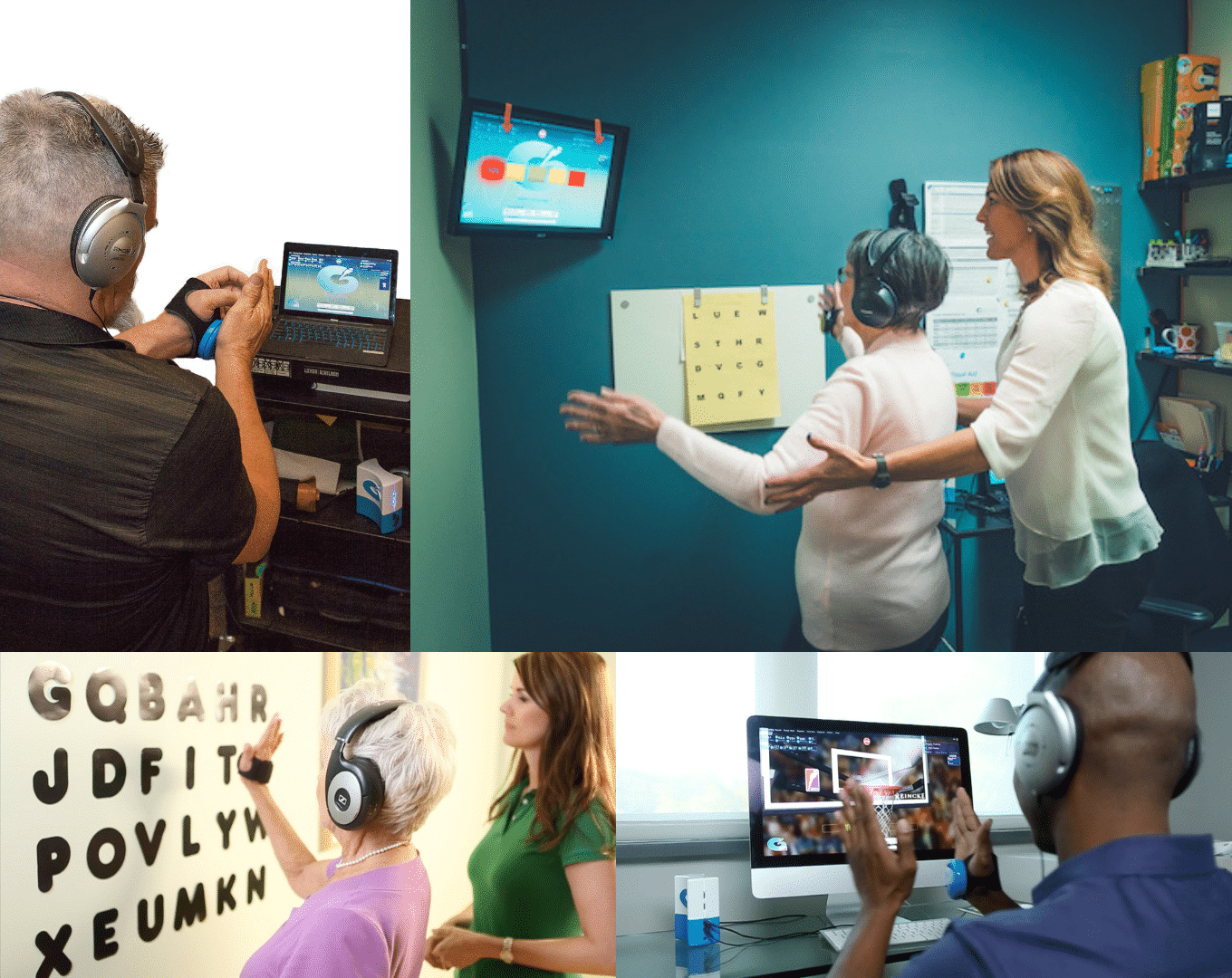
Target Audience:
This course welcomes the following professionals who have completed the Interactive Metronome Certification Course.
- Speech and Language Pathologist
- Speech and Language Pathology Assistant
- Occupational Therapist
- Occupational Therapy Assistant
- Licensed Medical, Rehabilitation or Mental Health Professional
- Music Therapist
Although adolescent/adult patients benefit greatly from auditory and auditory-visual IM, some continue to demonstrate deficits in visual processing, attention, and executive functions. This was the observation of a Speech-Language Pathologist (SLP) at a Level II Trauma hospital in St. Petersburg, Florida. In order to help these patients achieve further recovery, she developed several IM best practices that proved to be extremely beneficial to her patients. Spurred on by the treatment outcomes achieved by this SLP, other clinicians in her field developed and implemented additional best practices for the treatment of language processing and executive functions.
Across the U.S. in Arizona, another SLP reported integrating treatment tasks for Aphasia and Apraxia of Speech with IM, improving treatment outcomes for communication and language. This clinician has since developed best practices for using IM in skilled nursing facilities and with patients who suffer from dementia. This course contains helpful assessment and treatment strategies for the treatment of cognitive-communicative deficits in neurologically impaired adolescents/adults. Where applicable, specific treatment tasks, stimuli, and hierarchy are described in detail.
*Contact hours/CEUs are offered pending successful completion of a written exam at the end of the course.
Learning Outcomes:
Upon completion of this course, participants will be able to:
- Enhance treatment outcomes for cognitive abilities using Interactive Metronome;
- Demonstrate evidence-based practice through the appropriate use of objective & functional assessments to measure treatment outcomes;
- Successfully implement IM best practices for remediation of cognitive abilities in neurologically impaired adolescents/adults in order to improve ADLs.
Note: This course covers information that pertains to licensed therapists and therapy assistants. OTA professionals must practice IM under the supervision of an OT.
Specific Learning Outcomes for Speech-Language Pathologists & Audiologists:
- Describe 8 steps for improving visual attention & processing with Interactive Metronome;
- Give 5 everyday examples of executive dysfunction;
- Provide a minimum of 3 methods for integrating timing & rhythm training into cognitive-communicative therapy for adolescents/adults with neurological impairments.
*Note: This course covers information that pertains to licensed therapists and therapy assistants. SLPA professionals must practice IM under the supervision of a licensed SLP.
Authors
Dara Coburn, MS, CCC-SLP received her undergraduate and masters degree from the University of Central Arkansas and holds the Certificate of Clinical Competence issued by the American Speech-Language-Hearing Association. Dara is the National Program Champion for Interactive Metronome within the HealthSouth Corporation. She also serves as Interactive Metronome’s Clinical Support contact person for Life Care Centers of America. With expertise and experience in the field of neurological disorders, Dara was able to accept this new treatment tool and has been able to successfully integrate it into her practice by modifying it to individually meet her patient’s needs.
Nicole Viegut, MS, CCC-SLP received her undergraduate and graduate degree from the University of Wisconsin-River Falls in 1995 and holds the Certificate of Clinical Competence issued by the American Speech-Language & Hearing Association (ASHA). Nicole has had wonderful opportunities to travel as a therapist, specializing and training in the geriatric population with competencies in Dementia Staging and collaborating programs for patients, family, and staff. Nicole has also had the privilege to serve and treat the palliative population. Over the years, Nicole has worked in various settings, including pediatric private practice, UPARC, medically fragile 0-3 population for home health care as well as acute care, rehabilitation, and outpatient rehabilitation. Nicole has specialized training in Vital Stim, is currently training in Experia procedures, and presently providing speech-language pathology services in an acute care rehabilitation hospital specializing in neurological disorders, traumatic brain injury, stroke and other neurological disorders that affect speech, language, communication, swallowing and cognition. Nicole has several years of experience with Interactive Metronome, enhancing treatment outcomes for cognitive-communicative abilities. She is dedicated to her patients and families so that they may have the quality of life and live their lives to the fullest.
Nikki Smith, MS, CCC-SLP is a speech-language pathologist. She graduated from the University of South Florida with a Master’s in Communication Sciences and Disorders in 2001. Nikki participated in a five-part research thesis, chaired by Dr. Elaine Silliman, that examined the relationship between African-American English and phonological processing. Nikki specializes in pediatrics and currently works at a rehabilitation hospital where she treats children and adults with a variety of diagnoses. She also helps facilitate their Brain Injury Support Group. She has been certified in Interactive Metronome (IM) since 2006 and has used it with many of her pediatric and adult patients with much success.
Amy Vega, MS, CCC-SLP received her master’s degree in speech-language pathology from the University of South Florida in 1994 and holds the Certificate of Clinical Competency from the American Speech-Language & Hearing Association (ASHA). She specializes in adolescent and adult rehabilitation for patients diagnosed with traumatic brain injury, stroke, epilepsy, brain tumor & and other disease processes that affect communication, cognition, and behavior. She currently serves as Director of both the Clinical Education Department and the Clinical Advisory Board for Interactive Metronome, Inc. and is their Continuing Education Administrator. She provides clinical support to IM providers globally, serves as Editor in Chief for IM’s clinical publications and website FAQ/Best Practices search engine, develops IM certification materials and is the master-trainer for IM certification instructors.
